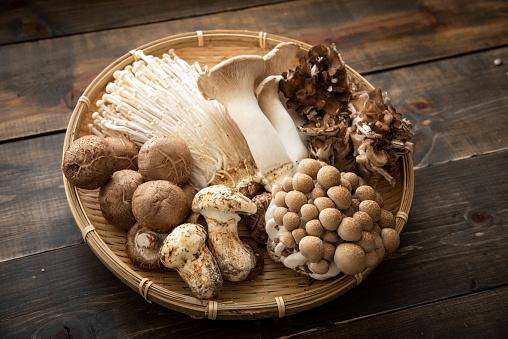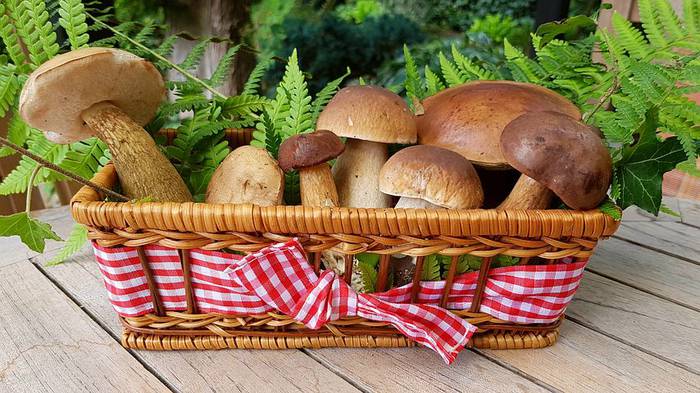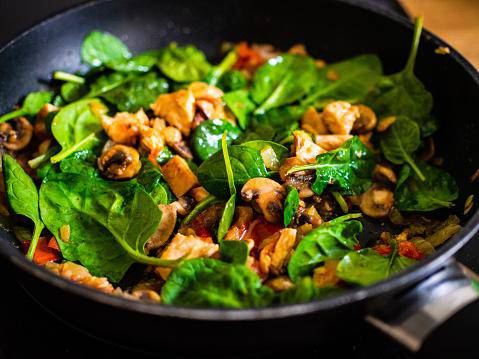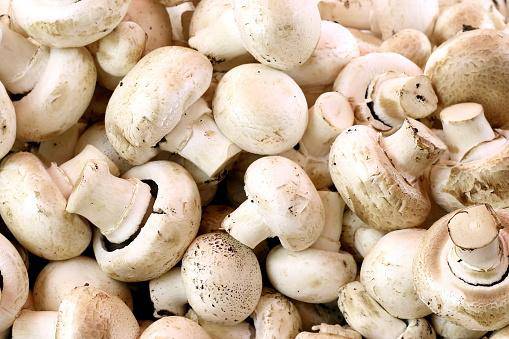
Are you unsure about eating raw mushrooms? Do you often find yourself in a dilemma whether the mushroom is poisonous or not? Are you confused about how to cook and store them properly?
You have come to the right place to resolve your doubts. Here is a perfect guide, some brainstorming facts about mushrooms, and different ways to include them in your diet.
Mushrooms are a spore-bearing, fleshy part of a fungus that grows above ground on soil or on its source of food. They are extensively used in Chinese, Korean, European, and Japanese cuisines due to their nutritional benefits. Popular dishes like pizza, sizzlers, pasta, sandwiches contain mushrooms.
Is it safe to consume raw mushrooms?
Raw mushrooms that are available in the supermarket are safe to consume. They are generally cultivated on mushroom farms. Raw mushrooms are composed of 92% water, 2% protein, 4% carbohydrates, and 1% fat. However, they lack sodium and vitamin c.
There are varieties of edible mushrooms like the common button, oyster, porcini, champignons, table mushrooms, small portobello mushrooms, and chanterelle. Edible mushrooms are grown in a controlled and sterilized environment by professionals. Oyster mushrooms are large and fleshy and one of the best variety in terms of texture. Brown-capped mushrooms are also quite popular.
Poisonous mushrooms lead to stomach aches, vomiting and can even be fatal. The common death cap mushroom is poisonous which closely resembles the edible straw mushrooms and caesars mushroom. Its consumption can lead to abdominal pain, food poisoning and stomach flu.
Other poisonous mushrooms include webcaps, autumn skullcap, destroying angels, and deadly dappling. Mushrooms should not be picked and consumed from the wild without proper knowledge about their type.
Some people might be allergic to mushrooms and it is best if they consume them only after an expert’s advice. Common allergic symptoms include vomiting, abdominal pain, bloating, diarrhea and cramping.
I am a great fan of chili garlic mushrooms. I hope that you like them too! With the increase in their popularity and consumption, researchers have taken a keen interest in mushrooms and their consumption.
Did you know that mushrooms have numerous health benefits as well as medicinal properties? Yes, you heard it right. Let us dive into some of its benefits-

- Mushrooms are a rich source of vitamin D– white button mushrooms are considered the most vegan source of vitamin D. When they are exposed to the rays of the sun, they increase their levels of vitamin D.
- Mushrooms contain nutrients that boost our immunity– Research has shown that mushrooms contain proteins, fibres and vitamin B12. They also contain selenium which is a very powerful antioxidant. These help to boost your immunity power and naturally shield you from various diseases.
- Mushrooms might help in preventing cancer– mushrooms are known to possess the ability to prevent cancer by preventing tumour formation and protecting our cells from DNA damage. Their extracts are used for therapeutic purposes and can even treat Alzheimer’s disease.
- Mushrooms can lower your cholesterol levels- Mushrooms help to keep your heart healthy by lowering your cholesterol levels. It helps in maintaining good blood circulation and optimum blood pressure. Studies have shown that they also contain photo nutrients that prevent the sticking of cells to the blood vessel walls and forming plaque build-up.
Other uses of mushrooms
Did you know that mushrooms are used for dyeing textiles? Before the invention of synthetic dyes, the chromophores present in mushrooms were used to produce vivid colors for dyeing wool and other natural fibers. Mushrooms also play an active role in biological remediation techniques as well as filtration techniques.

Best way to cook mushrooms
Although raw mushrooms may have some nutritional benefits on the digestive system, light or medium cooking of mushrooms do not hamper their health benefits. Grilling or microwaving them can retain most of their nutritional values. In fact, grilling or microwaving them have proven to increase their antioxidant property.
Heating them can also remove any superficial bacteria or germs that might be present on them. Raw mushrooms might be indigestible for individuals with digestive disorders. Some mushrooms like the oyster and porcini have a relatively tough texture compared to others. Cooking it can soften them and also enhance their flavours.

How to store mushrooms?
This is a very common question that bothers all of us. Mushrooms tend to darken if they are stored incorrectly. Pre-packaged mushroom can be stored in the refrigerator for a maximum of 3-7 days. They turn slimy if they are stored for a longer duration. Storing them in a cardboard box or a paper bag is generally advised. They can also be stored in a container without a lid and wrapped with plastic. Dried mushrooms have a longer shelf life up to 6-12 months. They can be rehydrated by boiling them again in water.
You can also naturally increase the vitamin D content of the mushrooms by simply placing them under the sun for 1 or 2 hours with their bottoms up. By this technique, the underside of the mushroom caps will be exposed to the sunlight which is the most sensitive region of the mushroom.
Popular substitutes of mushrooms
If someone who is allergic to mushrooms, is reading this article, they might feel left out. What if I say that there are substitutes for mushrooms?
Eggplants can be suitable substitutes for people allergic to mushrooms. For vegan people it can be a replacement for meat in a dish. If you want a replica dish of chilli mushrooms then cauliflower can be a better option for you instead of eggplant. You can also use zucchini as a replacement for mushrooms.
Forging has become quite trendy in recent years. People are showing interests in new varieties of food and exploring new foods. However, it is always advisable to not consume mushrooms found in the wild. If you are unsure about its type, it’s better to avoid taking risks. Purchasing them from the supermarket, or having a dish in a restaurant is considered to be safe.
I hope this article has helped you to decide whether to consume raw mushrooms or not. Frankly, it depends on individual preferences and the texture of the mushroom you are planning to have. They are safe as long as they are from the regular retail stores. However, the appropriate method of preservation must be followed to prevent losing any nutritional values. As long as you keep these precautions in mind you are good to go!
Enjoy your favorite dishes of mushrooms without any worry and follow our blog for more food-related articles.
Sources
https://happyherbivore.com/2017/05/mushroom-substitute-safe-eat-raw-mushroom-toxic/
https://foodiosity.com/can-you-eat-raw-mushrooms/
https://www.bbcgoodfood.com/howto/guide/health-benefits-mushrooms
https://en.wikipedia.org/wiki/Mushroom
